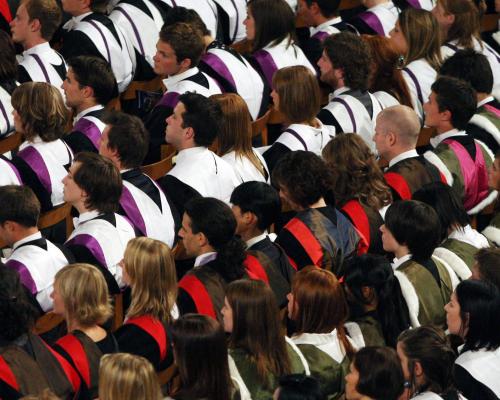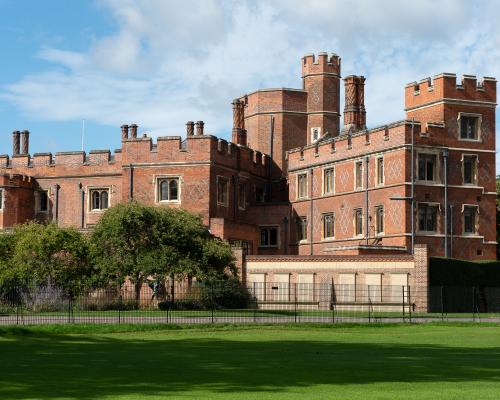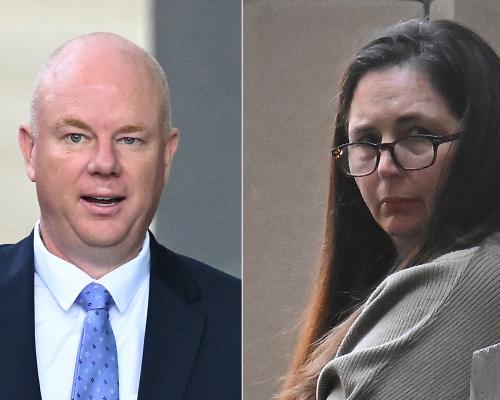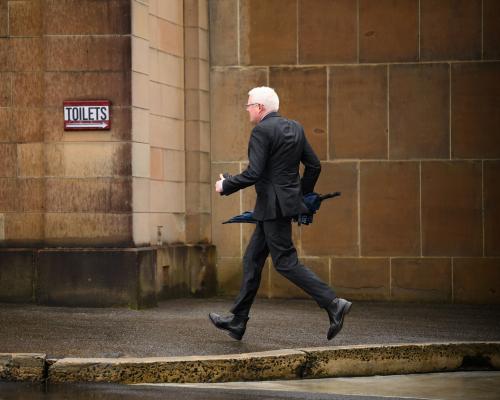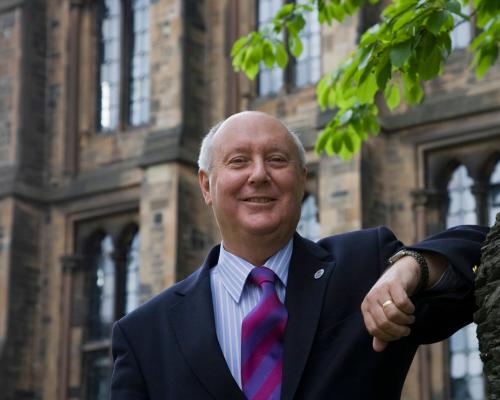
Sir Kenneth Calman was a doctor, public servant and academic leader whose identity as a proud Scot underpinned his values of compassion, ethics and hard work. In the 1970s, as the University of Glasgow’s first professor of oncology, Calman, who has died aged 83, set up networks of cancer patients who could share their experience of living with the disease and its treatment with fellow sufferers and medical practitioners. Later, as chief medical officer for England, 1991-98, he advised the UK government on the risks to human health during the bovine spongiform encephalopathy (BSE) outbreak.
Demonstrating his skill at handling contentious issues, from 2007 until 2009 Calman chaired the Commission on Scottish Devolution – known as the Calman commission – which had been set up by Scottish Labour and the other minority unionist parties in the Scottish parliament against opposition from the ruling Scottish National party. Its report was published in 2009, and its recommendations, described as “significant but gentle surgery on the body politic” by BBC Scotland’s political correspondent Andrew Kerr, were largely incorporated into the Scotland Act of 2012.
After training in transplant surgery in Glasgow, from the mid-1970s Calman shifted to cancer medicine at a time when more effective treatments were becoming available. He was also influenced by the work of Dame Cicely Saunders on palliative care. Convinced that a patient-centred approach to treatment was essential, in 1980 he set up the Scottish charity Tak Tent (Take Care, later Cancer Support Scotland), to give patients a voice in their care.
His first foray into public service came when he was appointed chief medical officer for Scotland, a post he held from 1989 until 1991. At the time Edinburgh had an unenviable reputation as the “Aids capital of Europe”. On his watch the Lothian Health Board launched a “frank and fun” safe sex campaign, also called Take Care, which was in marked contrast to the doomy Aids: Don’t Die of Ignorance campaign that ran in England. Recognising that HIV in Scotland was transmitted principally through intravenous drug use, Scotland’s health authorities developed and expanded needle exchange programmes.
Calman was immediately catapulted into the same role for England, based in the UK Department of Health (DoH), to succeed Sir Donald Acheson in 1991. Like Acheson, Calman was concerned about possible links between BSE and the human brain disorder known as new variant Creutzfeldt-Jacob disease (nvCJD), but was falsely reassured by the Ministry of Agriculture, Fisheries and Food (Maff) that no bovine offal, such as spinal cord, was entering the human food chain.
Both he and Acheson faced criticism in the report of the subsequent Phillips inquiry for making unwarranted statements about the safety of British beef. But as the inquiry recognised, neither had been able to make statements independently of officials in both Maff and the DoH, who were determined to play down anything that might damage the beef industry.
Reflecting on his decade as chief medical officer in two countries, Calman later wryly wrote: “The CMO is effectively at the head of a medical intelligence operation and in theory should be relied upon to have his or her finger on the pulse of new developments. In practice, this isn’t always possible.”
Calman was born in the Knightswood suburb of Glasgow, the elder son of Grace (nee Don) and Arthur Calman. His father, a mechanic with a textiles company, died of a heart attack when Kenneth was nine, leaving his mother, who worked as a secretary, to raise Kenneth and his brother, Norman. He later credited the Knightswood library with feeding his thirst for learning. His precocious intelligence won him a place at the selective Allan Glen’s school, open at a much-reduced fee to Glasgow boys who passed the entrance exam.
He then received a scholarship to study medicine at the University of Glasgow, receiving a degree in biochemistry in 1964 and qualifying in medicine in 1967. His connections with the university were lifelong. He held teaching and research posts in surgery there until 1972, when he went to London to take up a research fellowship at the Institute of Cancer Research’s Chester Beatty laboratories in Chelsea.
He returned to Glasgow as its first professor of oncology in 1974, later becoming dean of postgraduate medicine and professor of postgraduate medical education. He was a strong advocate for the arts in medicine, for a public health approach to the training of doctors, and for recognition that social inequalities are significant determinants of ill health.
After his major public service roles and a stint as vice-chancellor and warden of the University of Durham, in 2006 he was elected chancellor of the University of Glasgow, a position he held until 2020. During this time he became a student again, crowning his lifelong love of the literature of his country with a master’s in Scottish literature and medicine in 2012. A poet and author of almost a dozen books, including Storytelling, Humour and Learning in Medicine (2001) and an autobiography, It Started in a Cupboard (2019), he chaired the National Library of Scotland and was deputy chair of the British Library. Among many other honours, he was knighted in 1996.
“Through learning I help others” was the translation of the Latin motto on Calman’s coat of arms. His dedication to knowledge was leavened by an impish sense of humour – though perhaps he was not entirely joking when he told his government bosses that the best way to improve the nation’s health would be to reintroduce rationing.
His colleague at Glasgow University Beverly Bergman said: “He was a delightful man whose gentle manner concealed a brilliant, all-encompassing mind.”
Calman met Ann Wilkie in 1960 when they were both students, and they married in 1967. A former deputy headteacher, she survives him, along with their three children, Andrew, Lynn and Susan.
• Kenneth Charles Calman, oncologist and public servant, born 25 December 1941; died 21 July 2025

